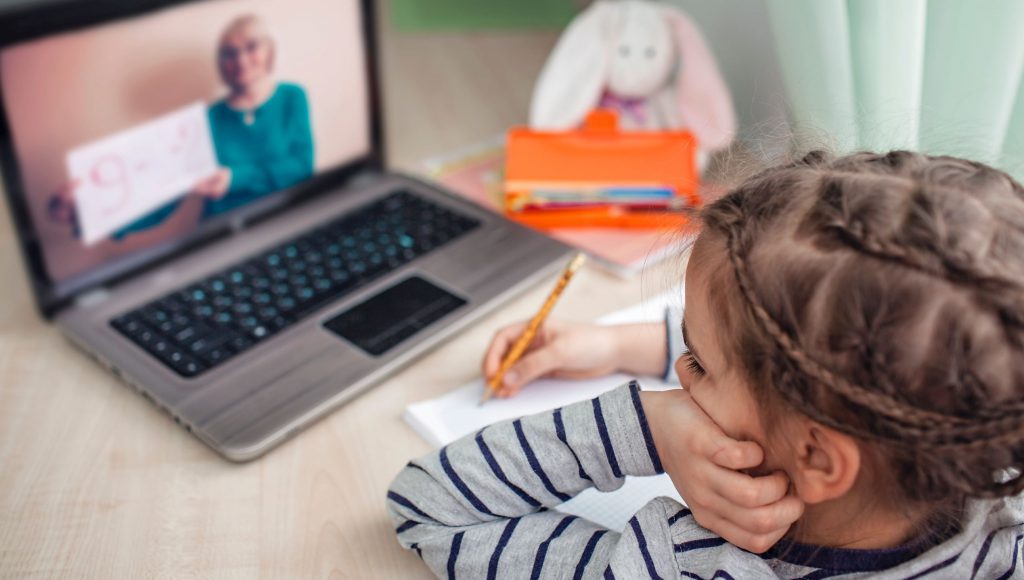These days we are witnessing a massive revolution in the learning arena, as hundreds of millions of students worldwide use technological tools to study remotely from home.
On the one hand, high school and university students experience distance learning almost as if they were at school, listening to live or recorded lectures on their computers or smartphones. They also receive assignments and submit papers and tests online from home, while they’re physically away from teachers and classrooms.
On the other hand, elementary school students usually receive assignments in the form of watching videos. In addition, they receive tasks they have to turn in to teachers through computers or smartphones (often belonging to their parents). The Chinese, for example, believe, that remote online learning through direct viewing of lectures can damage young students’ sight, and prefer to send tasks for these students to complete.

It looks like the coronavirus pandemic and students quarantining at home are not going to end soon. In China, students are now nearing three months of being closed in at home, with no end in sight. While several Chinese provinces have decided to bring back high school seniors so that they can take their matriculation exams, in large cities such as Beijing and Shanghai the decision has yet to be made.
So will the coronavirus crisis and remote technologies change the status of teachers? Will distance learning make teachers and schools obsolete? Well, in my opinion they will not – but they will definitely change the role of technology and teachers within the learning process.
Let’s give remote technology and knowledge acquisition the honor they’re due. Yes, students will be able to acquire knowledge, do assignments, and keep in touch with other students to share information and collaborate. Having said that, students will still need teachers acting as mentors to guide them, direct them, check their tests and assignments, and lead them to the next challenge. Teachers, too, will need to be fluent in using new technologies and artificial intelligence, which will examine, direct and rate the results of each student’s learning.
With that, I believe we are facing a fundamental change in the education system. Educational institutions are establishing studios and recording lessons taught by their best teachers, so that these recorded materials can be pooled and used by students. This pool of resources can also be used as a knowledge center for other teachers and education students, who can learn from the best teachers without having to come to physical classrooms to hear them.
The Israeli Ministry of Education is moving in the right direction, though perhaps “too little, too late.” It must continue to provide infrastructure and produce educational content, just as it is doing today. Alongside that, however, the Ministry must provide personal equipment to teachers for use at home (and at schools when they reopen). Teachers require laptops, cameras for their home computers, and high-speed internet connections capable of maintaining the connections with their students. Teachers should not be purchasing this equipment with their own funds, and they should not be volunteering to work without pay in order to support their students. Teachers should be equipped with professional equipment and training. The sooner decision-makers realize this situation is not going to end soon, and that we should be prepared for the long run, the stronger we will emerge from this battle and the brighter will be our future.

I believe that what is happening today will strengthen our understanding of the importance of the teacher’s role and status. It will also shed light on the importance of technology use – from personal laptops through remote learning systems to artificial intelligence.
This is an opportune time for teachers. Until now, many parents have been undervaluing teachers and not appreciating them enough. Today, we hear about many parents who suddenly understand how hard and exhausting the teacher’s role really is, and how important it is for the advancement of their children. If something positive can come out of the coronavirus crisis, it is the change in our perception of the teachers’ day-to-day function, and our understanding of the important role teachers play in the lives of our children.
I am calling on the Israeli government to equip teachers with proper tools for supporting over 2 million students currently at home (and who might not even return to school until September 1). Teachers are the backbone of our nation, and the “pillar of fire” leading our children. Let’s give them the support and the appreciation they truly deserve.
Everyone these days, and rightly so, is worried about providing protective equipment to doctors, nurses, and medical teams on the frontlines of the coronavirus war. It is my hope that we will start providing equipment, training, support and tangible appreciation to teachers who are greatly impacting the future of our children.
Uri Ben-Ari (CEO of UBA Ventures and former Executive VP of Ness Technologies) is the co-foundr and president of Athena Fund, that promotes the empowerment of teachers in Israel by providing them with tools for self-fulfillment and professional advancement




